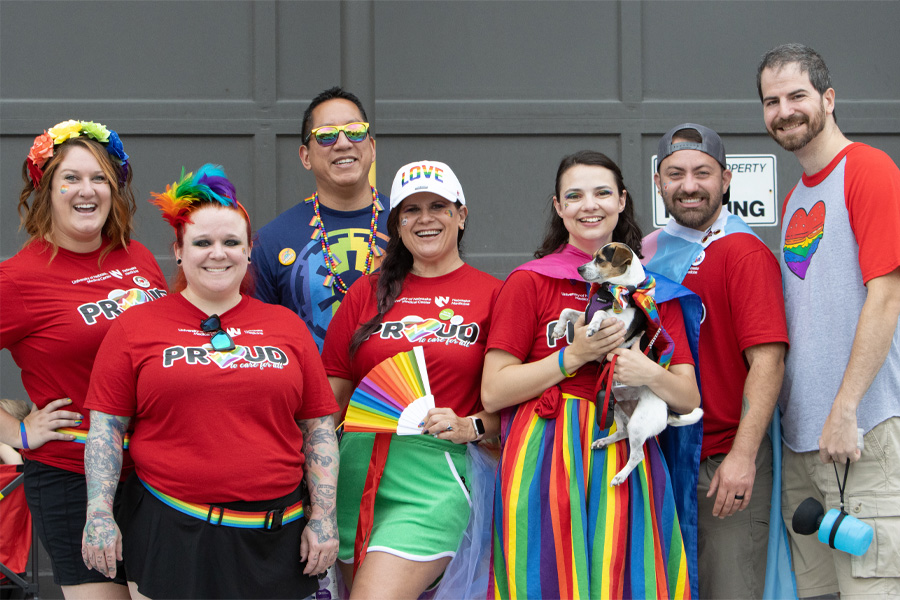The Gender and Sexuality Resource Center has launched regular safe space training sessions to help participants feel prepared to support and advocate for members of the LGBTQ+ community. Safe space training is available for any UNMC or Nebraska Medicine student, faculty or staff member who would like to be trained and identify as an ally to lesbian, gay, bisexual, trans spectrum, queer spectrum, intersex, asexual, gender spectrum, Two-Spirit and/or sexuality spectrum (LGBTQ+) students, faculty, staff and patients.
The training covers basic concepts and principals, as well as information specific to a health care setting.
“LGBTQ+ folks experience several health disparities, many of which can be attributed to the stigma and discrimination they face,” said Catherine Medici-Thiemann, PhD, coordinator for the center. “In Nebraska, a large percentage of the LGBTQ+ community thinks their provider would be uncomfortable if they disclosed their gender identity or sexuality. Receiving training and identifying as an ally fights these harmful stigmas and allows LGBTQ+ individuals to feel comfortable, safe and welcomed.”
Safe space training at UNMC is a two-hour group training that takes place virtually in real time. Interested participants can visit the center’s page on ENGAGE (for UNMC colleagues) or Apollo (for Nebraska Medicine colleagues) to see currently scheduled trainings and sign up.
“Taking safe space training is taking the initiative to be a better colleague, teacher, co-worker or friend to LGBTQ+ folks,” said Dr. Medici-Thiemann. “While specific to supporting and gaining a basic understanding of the LGBTQ+ community, the concepts covered in safe space training prepare you to be someone who recognizes situations and scenarios that make people feel excluded, unwelcome or unsafe and gives strategies for improvement.”
Anyone interested in scheduling a dedicated safe space training session for a department or unit can contact Dr. Medici-Thiemann. These trainings can be presented in person or online.
Participation in safe space training awards 2.0 Nursing Contact Hours. To receive contact hour credit, learners must attend the full course. No partial credit will be awarded.
